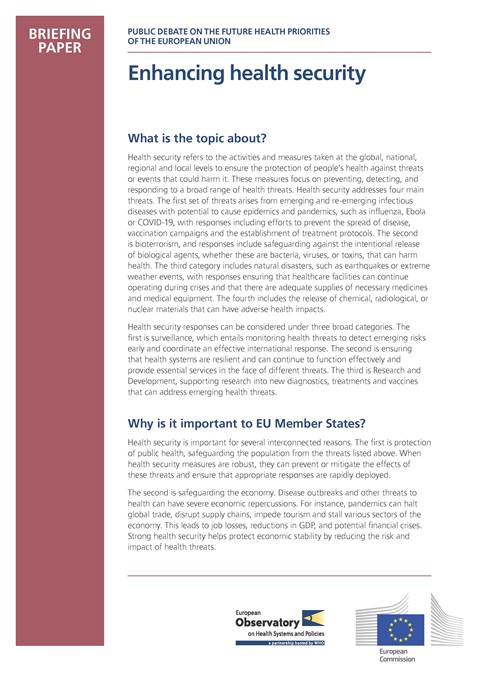Enhancing health security
Public Debate on the Future Health Priorities of the European Union

Overview
Health security refers to the activities and measures taken at the global, national, regional and local levels to ensure the protection of people’s health against threats or events that could harm it. These measures focus on preventing, detecting, and responding to a broad range of health threats. Health security addresses four main threats. The first set of threats arises from emerging and re-emerging infectious diseases with potential to cause epidemics and pandemics, such as influenza, Ebola or COVID-19, with responses including efforts to prevent the spread of disease, vaccination campaigns and the establishment of treatment protocols. The second is bioterrorism, and responses include safeguarding against the intentional release of biological agents, whether these are bacteria, viruses, or toxins, that can harm health. The third category includes natural disasters, such as earthquakes or extreme weather events, with responses ensuring that healthcare facilities can continue operating during crises and that there are adequate supplies of necessary medicines and medical equipment. The fourth includes the release of chemical, radiological, or nuclear materials that can have adverse health impacts.